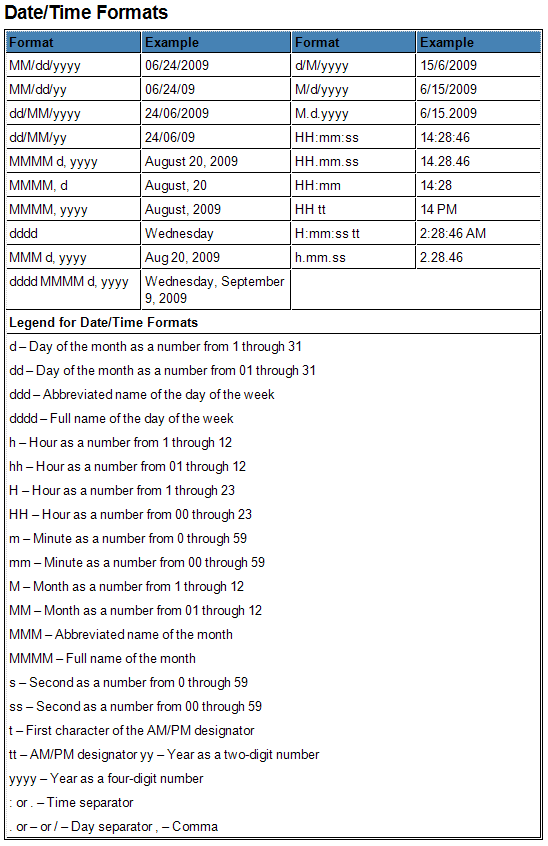Data types (date and numeric formats)
There are three data types in Eloqua: Text, Numeric, and Date/Time. Each data type defines the format of information that can be entered into a data field and stored in your database.
- Text: An alphanumeric string of letters, numbers, and (in some cases) symbols. There are two types of text fields:
- Standard or "small" text fields are used for very specific, statistical information that is entered into contact fields, account fields, or custom object records. Small text contact fields and account fields have a maximum of 100 characters, and small text custom object records have a maximum of 250 characters. If you are using a multi-select picklist with text fields, each field has a limit of 1000 characters.
- Large text fields of any kind support up to 32,000 characters. These fields can be used to provide descriptions, extra context, or feedback, depending on the nature of the asset in which the field is placed.
Note: Custom fields with the large text data type will not show up in Insight reporting. Form data and custom objects do support the large text data type, however, they truncate at 2000 & 1000 respectively.
Small text character limit Large text character limit 100 for contact fields and account fields 32,000 250 for custom object records 32,000 1000 for Multi-Select Picklist Fields Not available in Multi-Select Picklist Fields - Numeric: Includes decimal numbers (up to four decimal points) and integer numbers (including negative values). The maximum length of a numeric value is 19 integer digits (15 before the decimal point and 4 digits after the decimal point). Text values such as "$" are no longer allowed in the field, but are now part of the format.
Note: The default format for the Numeric fields is "#.##".
- Date/time: A properly-formatted date and/or time in one of the formats allowed in your implementation of Eloqua. For example, you can use the MM/DD/YYYY format for dates (the North American format) or you may be set up to also allow DD/MM/YYYY, MMM-DD-YY, or MM-DD-YY HH:MM:SS.
- Date/Time information can be entered in any format compliant with the data standards in your implementation of Eloqua. This includes: (1) the standard format for dates and times (YYYY-MM-DD HH:MM:SS:mmm, with the time in 24-hour format); (2) MM/DD/YYYY, the format used in the database; (3) the default formats set up by Eloqua (as long as they are not modified or deleted by the Customer Administrator); or (4) any of the additional formats set up by the Customer Administrator, which may include the (DD/MM/YYYY).
- You will notice that date/time information is displayed in Reports and other areas in the YYYY-MM-DD HH:MM:SS:mmm format (the default used in the database, although you can set this to the European time format) with the following features: (1) calendar dates are expressed in the format: calendar year (4 digits)-calendar month (2 digits)-calendar day of the month (2 digits) ("2010-05-14") and; (2) time is expressed in the 24-hour form in the format: hours (2 digits): minutes (2 digits): seconds (2 digits) and (in some cases, where required): milliseconds (3 digits, but usually only used in data imports and exports, not Reports) ("17:55:30:203").
The following section provide a full list of all the default formats provided in Eloqua for the date/time and numeric data types:
